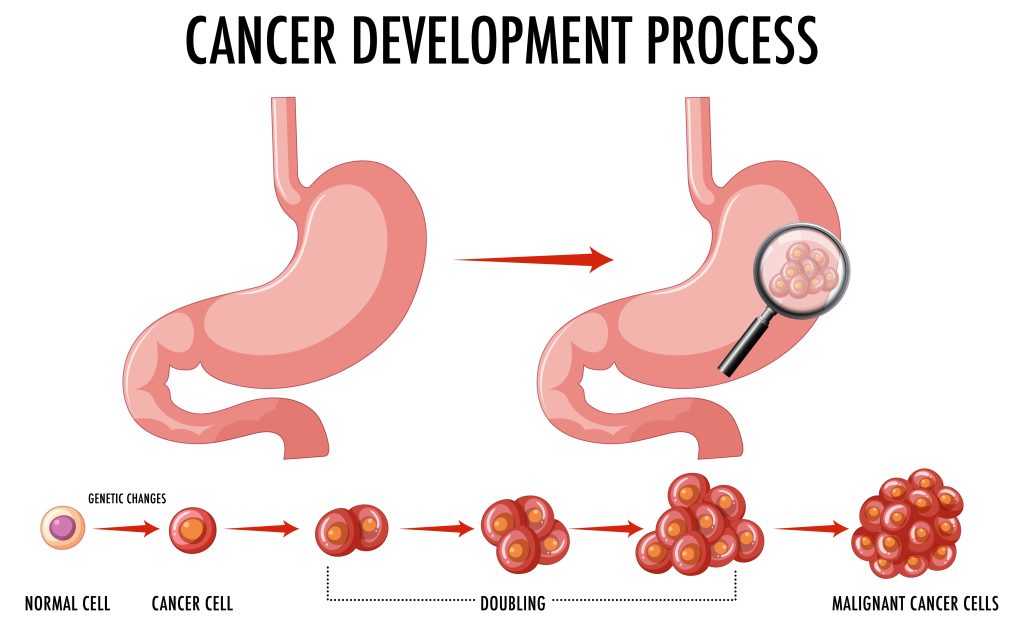Bladder cancer is a type of cancer that begins in the cells of the bladder, which is a hollow organ located in the pelvis responsible for storing urine. Here’s some information on bladder cancer, including its causes, signs and symptoms, diagnosis, prevention, and treatment:

Causes
The exact cause of bladder cancer is not known, but several factors can increase the risk of developing the disease. These risk factors include:
1. Smoking: Cigarette smoking is the most significant risk factor for bladder cancer. Smokers are several times more likely to develop bladder cancer compared to non-smokers.
2. Exposure to certain chemicals: Occupational exposure to chemicals such as aromatic amines, aniline dyes, and certain chemicals used in the rubber, textile, and paint industries can increase the risk of bladder cancer.
3. Age and gender: Bladder cancer is more common in older adults and is more frequently diagnosed in men than in women.
4. Chronic bladder inflammation: Long-term urinary tract infections and chronic bladder irritation, such as from the use of a urinary catheter, may increase the risk.
Signs and Symptoms
The signs and symptoms of bladder cancer may include:
1. Blood in the urine (hematuria): This is the most common symptom. Blood may be visible in the urine or may only be detected under a microscope.
2. Frequent urination.
3. Painful urination.
4. Pelvic pain.
5. Back pain.
6. Urinary urgency or incontinence.
Diagnosis
If bladder cancer is suspected, various diagnostic tests may be performed, including:
1. Urine tests: Testing the urine for the presence of blood or abnormal cells.
2. Imaging tests: X-rays, CT scans, or MRI scans may be used to visualize the bladder and surrounding structures.
3. Cystoscopy: A thin tube with a camera is inserted through the urethra to examine the bladder and take biopsies if necessary.
4. Biopsy: Removal of a small sample of bladder tissue for examination under a microscope to confirm the presence of cancer cells.
Prevention
While it’s not possible to prevent all cases of bladder cancer, some measures may help reduce the risk:
1. Quit smoking or avoid exposure to secondhand smoke.
2. Take precautions at the workplace to minimize exposure to chemicals linked to bladder cancer.
3. Stay hydrated by drinking plenty of fluids.4. Maintain a healthy diet rich in fruits and vegetables.
Treatment
Treatment options for bladder cancer depend on the stage and grade of the cancer, as well as the individual’s overall health. Common treatment approaches include:
1. Surgery: Transurethral resection of bladder tumor (TURBT) for early-stage cancer, partial or radical cystectomy (removal of part or all of the bladder) for more advanced cases.
2. Radiation therapy: The use of high-energy radiation to kill cancer cells.
3. Chemotherapy: Medications used to destroy cancer cells, which can be given before surgery (neoadjuvant chemotherapy) or after surgery (adjuvant chemotherapy) to reduce the risk of recurrence.
4. Immunotherapy: Drugs that help the immune system to identify and destroy cancer cells.
5. Targeted therapy: Medications that specifically target certain abnormalities in cancer cells.It’s important to consult with a healthcare professional for an accurate diagnosis, personalized treatment plan, and further information regarding bladder cancer.




